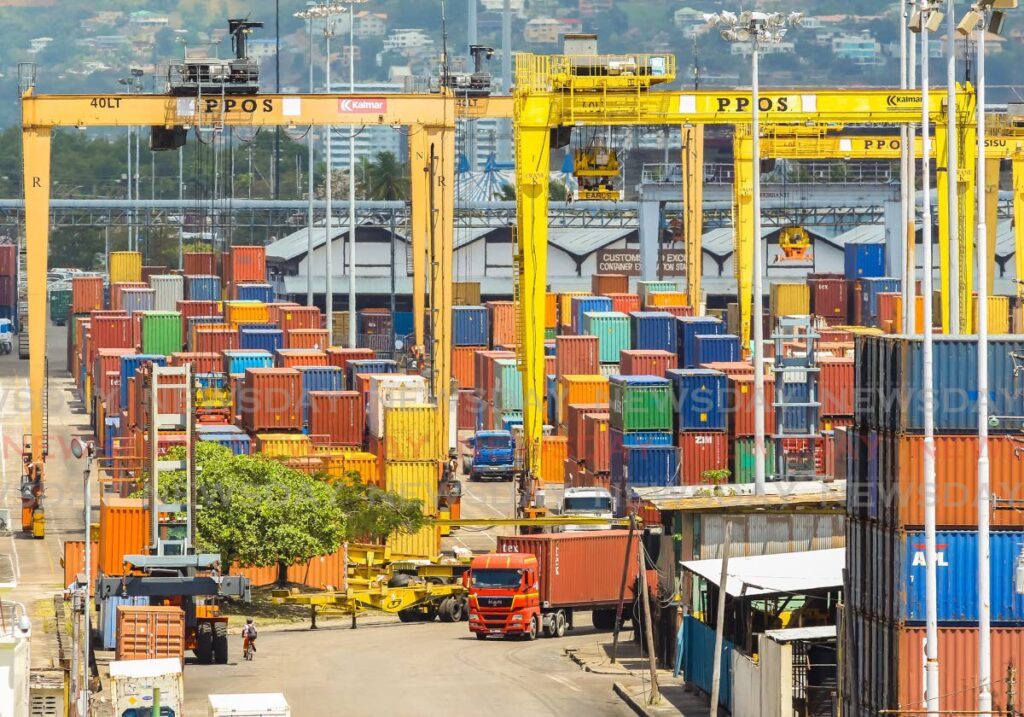Confusion at the ports

Containers, many of them arriving to stock shelves and shop floors for Christmas, are in limbo at the Port of Port of Spain and at Point Lisas.
SWWTU general secretary Michael Annisette says the delays are being caused by a shortage of customs officers, poor document preparation by shipping agents and a general failure of executive preparation to manage the reality of a busy shipping season.
Mr Annisette noted that the organisation of port operations could benefit from implementing a single window system and greater synchronisation of services.
The union boss says customs officers are overworked and the current complement, well short of the 300 he considers appropriate for the Christmas workload, will stop working overtime this week.
Couva/Point Lisas Chamber president Mukesh Ramsingh said clearances had also slowed because customs officers were not using the imaging scanners and were defaulting to a 100 per cent inspection, leading to further slow-downs.
The Finance Minister argued in December 2022 that if the port moved to 100 per cent inspection by scanners, operations would grind to a halt. But that doesn't play out in reality.
Even without scanners, port operations are generally prone to congestion during busy shipping periods. In December 2022, inspections were also being done without scanners, while a unit costing $25 million sat idle.
Customs officers have objected to the use of scanners, citing concerns about the potential for radiation poisoning and decreased virility. But there's good reason to use them.
The traffic in guns through legal port shipments is substantial, with TT's Strategic Security Agency reporting seizures in 2017 of 8,154 guns (including assault rifles), 9,389 in 2019 and 11,043 in 2020. In 2022, between January and August, only 4,000 of the 23,000 containers imported through the port of Port of Spain were inspected.
The Government plans to install new scanners at the ports by April 2024, but what's needed is not just new imaging technology but a commitment to streamline operations at the port with an emphasis on both improved detection of contraband and a practical commitment to improve operations.
That will demand more than just new scanners.
What's needed is a fresh effort, in collaboration with stakeholders, to create a system that both strategically screens incoming goods in proportion to the volume of shipments that must be processed daily at both major ports.
While it may be true that TT scans more containers than either the US or EU, the illegal gun trade through our ports must be stymied.
The consequences of poor port management will eventually affect the general public, as delayed shipments will incur additional rents and demurrage charges that customers will ultimately pay. Confusion and inefficiency at our ports cannot be an accepted feature of TT business operations.


Comments
"Confusion at the ports"